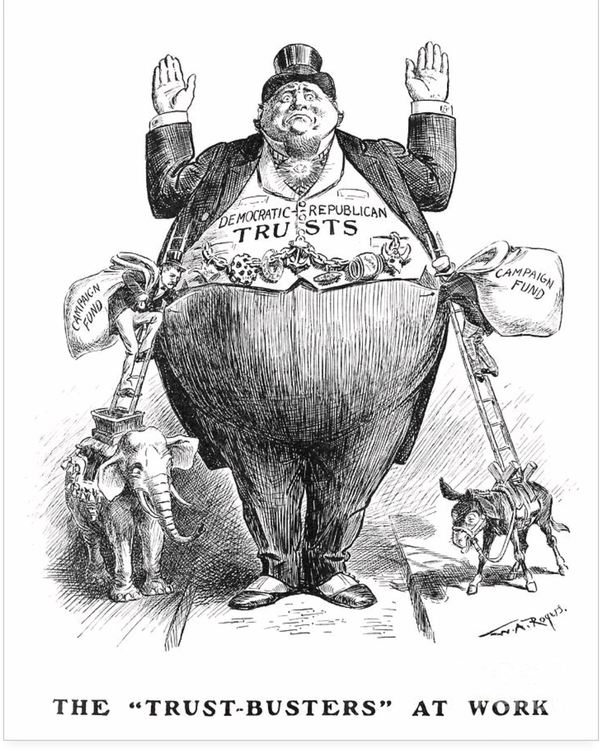The Age of Extraction
Wu’s book argues that we built platforms, but the wrong kind. We need platforms of course, but making them essential and extractive at the same time is a real problem.

Hi there,
It is hard to know what to call these times–the TikTok economy?--but “the Age of Extraction” is such a great, dark description. Every part of our lives has become a target for monopoly extraction, whether it’s price-gouging, fees, or forced attention to annoying ads. That’s true, obviously, of the tech platforms, but sometimes we can overfocus there, because its also true of many other areas of life as well, like housing and healthcare.
“The Age of Extraction” is the name of a great new book by my friend Tim Wu, who was my running mate back in our 2014 challenge to Andrew Cuomo’s governorship. The New York Times, in a rave review, wrote that “reality has since caught up to a future he has long warned about” and called it “an intelligent and useful guide to a dispiriting age.” It quoted the book: “Prosperity, fairness and growth are not incompatible,”
After our run, Wu went to Biden's White House where he was a critical driving force Administration’s antimonopoly program, pushing for the appointment of Lina Khan and Jonathan Kanter, and the architect of the right to get hearing aids over the counter. He previously wrote The Curse of Bigness, which is a terrific and short introduction to antimonopoly’s history and law. His new book manages to be realistic about where we are, but optimistic about how we can fix things.
In this book, Wu wants to know what happened to the promise that the Internet would make everyone rich. That may sound vaguely ridiculous as a promise now, but through the ’90s and the early 2010s there was a broad optimism that the arrival of this marvelous new technology was certain to spread democracy, culture, and everything else. When I worked for Howard Dean's campaign in 2003 as his Director of Online Organizing I was swept up in this vision, the internet as decentralizing power. Unfortunately, that isn't what happened.
What happened, Wu argues in his book, was a mixture of naiveté and fundamental misunderstanding of economic power centered in platforms. As a society we focused on the flourishing of online activities and the rise of social media while neglecting the growth of monopoly and the return of industrial models of scale. Wu’s book argues that we built platforms, but the wrong kind– we need platforms of course, but making them essential and extractive at the same time is a real problem.
That is key to anchor the second half of the book, which is devoted, in effect, to an antimonopoly vision of the state. It responds to a need we have for some vision of a state that is neither brutal capitalism nor a command economy.
Brutal, unrestrained capitalism is intrinsically fragile, a point on which Wu agrees with figures like Karl Marx. In the manic stage, it convinces us that all of our problems will be solved, until the crashes come, and in the chaos and suffering the strongman rises, promising to whip everything into shape. We’ve obviously been going through this cycle ourselves.
Wu’s answer is “an architecture of equality” a decentralization of economic power and a balanced economy. He takes the project of separation of powers as unfinished, given its failure to handle economic power.
This book is good, it is deep, and you will learn a lot from it.
You can order the book here! And I've talked to Tim about doing some writing for this newsletter--look out for his words, coming soon.
Zephyr
PS: Speaking of books, I reviewed two great books about consumerism and more in the New York Review of Books in this month's issue.
Support this newsletter if you can. It just pays the hosting fees.



